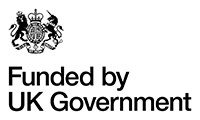
In April 2025, the latest allocation of the Rural England Prosperity Fund (REPF) was announced by Government. Rural England Prosperity Fund: prospectus updates for 2025 to 2026 - GOV.UK
We have been allocated £146,355 to spend between July 2025 and March 2026 on capital interventions in our rural communities as part of the REPF.
Applications are open until 30 November 2025, subject to funds.
Rural Locations
Projects must be based in a rural area. For fund purposes, rural areas are defined as the examples below:
- Towns, villages and hamlets with populations below 10,000 and the wider countryside
- Market or ‘hub towns’ with populations of up to 30,000 that serve their surrounding rural areas as centres of employment and in providing services
How to check a postcode
Use Magic Map Application (defra.gov.uk) to check postcode eligibility for the fund.
- Select the ‘Get Started’ button. Select the ‘Map Layers’ icon at the top left of page. Select ‘Administrative Geographies’. You then need to select 'Other Administrative Boundaries' and finally, 'Rural England Prosperity Fund'.
- Search for a location by entering the postcode within the search bar (top left of page) and selecting it from the drop down or manually zoom in on a location.
- From the toolbar of icons above the map select the (i) ‘Identify’ icon and click on the exact location of your project. A pop-up box will appear showing the site check results as A RURAL AREA for the purposes of REPF or NOT A RURAL AREA for the purposes of REPF.
For assistance, please email economy@staffordbc.gov.uk.
Amount of grant
Capital grants of a minimum of £5,000 up to £65,000 are available to eligible organisations and 20% is to be matched funded by the SME.
We cannot support projects that have already received funding from other Defra schemes. This includes:
- The Farming in Protected Landscapes Programme
- The Farming Investment Fund
- The Platinum Jubilee Village Hall Improvement Grant Fund
We cannot support projects or costs where there is a statutory duty to provide them.
The Rural Fund can only be used to meet project costs relating to activity that takes place between the 1 April 2025 and 31 March 2026 (inclusively).
Example projects
Grants for the following will be considered for funding amongst others:
- Creation of event venues or farm tourism facilities such as accommodation, wedding venues and leisure facilities including pet and equine facilities.
- Purchase of equipment for food processing for non-farmed own businesses such as brewery equipment, modernising existing kitchen equipment, onsite vending machines.
- Capital grants for equipment to support showcasing of local food and drink products.
- Capital grants to equip development kitchens or modernise existing kitchen equipment for increased energy efficiency or increased productivity through automation.
- Capital grants to develop local tourist attractions such as information boards and visitor centres.
- Provision of premises for community owned shops.
- Electric vehicle charging points.
- Conversion of farm buildings to other business uses
Applicant Eligibility
The applicant must be an independent profit seeking business based in commercial premises, within the local rural authority area of Stafford, and must not be controlled by a corporate entity.
An independent business can be defined as:
- Privately owned and not a public company (plc)
- Operates autonomously and is not affiliated with larger corporations or chains
The applicant also:
- Must be currently trading and can provide at least 12 months of certified or management accounts.
- Must employ less than 250 full-time equivalent persons.
- Must have an annual turnover of less than or equal to £44 million or a balance sheet total of less than or equal to £38million.
- Must not have received more than £315,000 in public subsidies in the current and previous two financial years (financial year being 1 April to 31 March) including the expected level of grant they are applying for.
- Must not have already purchased the service/product prior to grant application approval and prior to receiving a fully signed funding agreement from the Borough Council.
Potential applicants are advised to download and read the following documentation, before submitting their online application.
Forms to be downloaded:
- REPF Grant Policy (pdf 178kb)
- REPF Application Guidance Notes (pdf 196kb)
- REPF Subsidy Control Declaration Form (pdf 144kb) - you can download this form, fill it in and use your electronic signature or print a copy and fill it in manually. Or, you can download and fill in the Word version of the Subsidy Control Declaration Form and sign using your electronic signature. The declaration form is to be uploaded to your online application form.
- Basic Cash Flow Forecast SME Template (xls)
- Example Management Account and Forecast Template (xls)
Please complete the online application form.
Business Grant Applications Privacy Notice
Video on Sustainable Stafford
Please see our video on how our rural businesses have benefitted from grant funding (YouTube).
Please subscribe to this page for further updates.
